Common Intellectual Experience 100, Section J
Ursinus College, Fall 2024
Instructor: Christopher J. Tralie

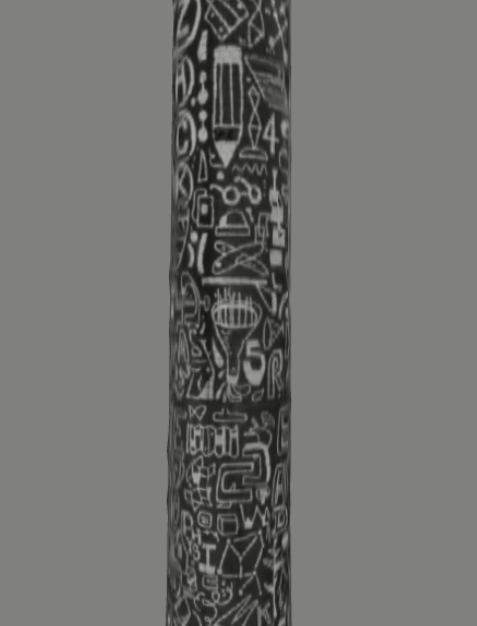
A 3D model of the painted smokestack on campus, or "Live The Questions" by Katie Merz. An Ursinus alumnus, Seraiah Kutai, and I made the 3D model
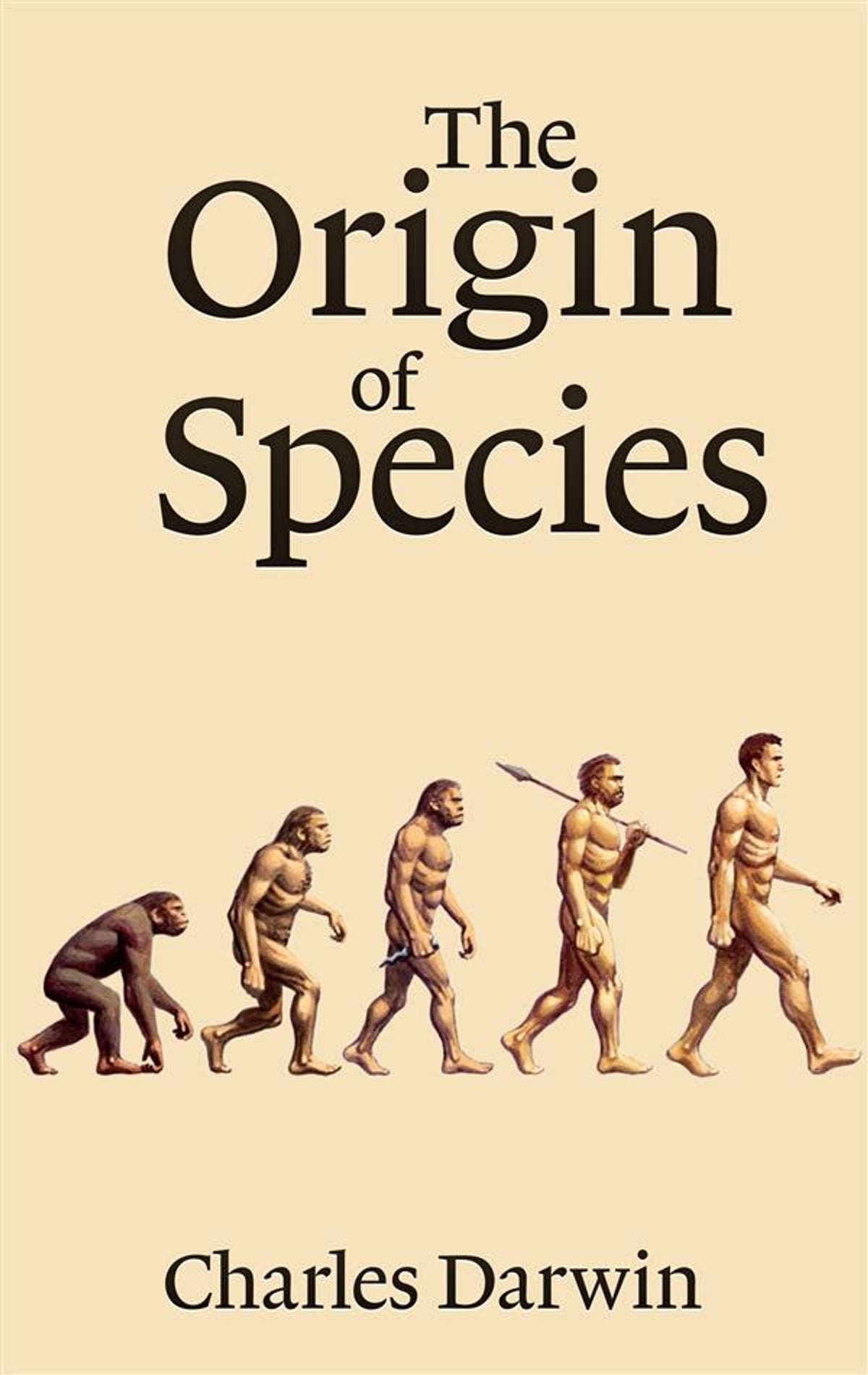
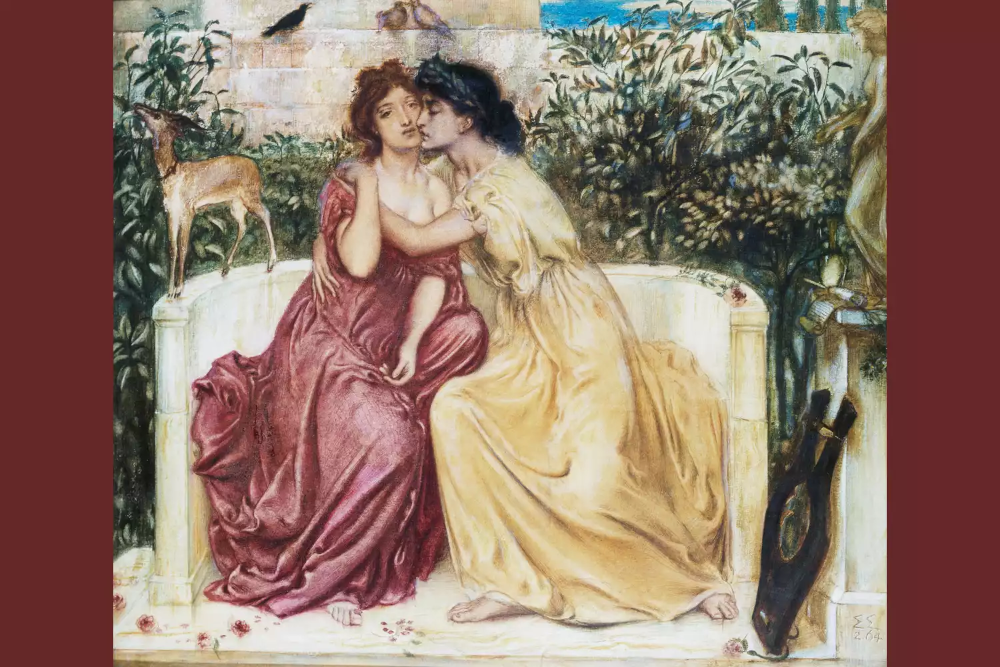
Sappho and Erinna in the Garden Mytelene, by Simeon Solomon. Fine Art Photographic Library/Corbis via Getty Images.
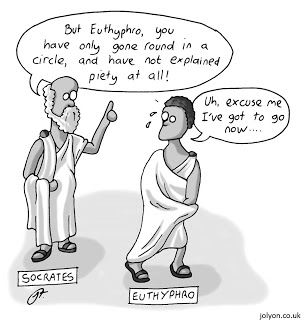
A cartoon depiction of Socrates's Euthyphro Dilemma, as drawn by Jolyon Troscianko
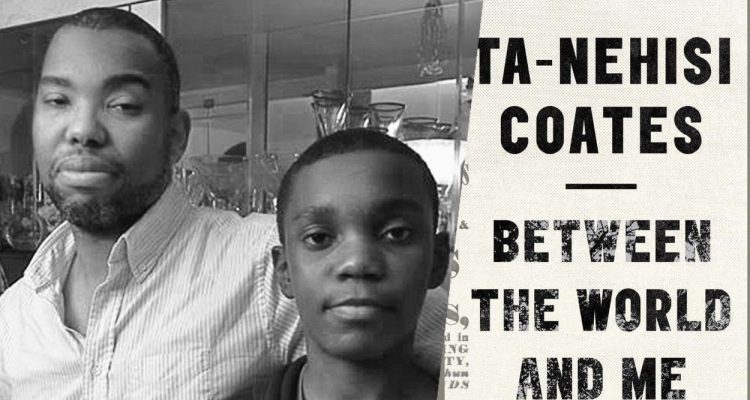
Table Of Contents
Overview
Class Times / Locations
- Monday, Wednesday, Friday from 10:00AM - 10:50AM in IDC 210
Student Office Hours
-
Monday/Wednesday 3:30PM - 5PM, Friday 3:30 - 4:30PM Pfahler Hall, 106
-
Other times by appointment
Prerequisites/Requirements
None, except for an open mind and a willingness to take your time!
Instructor

The picture above is of me when I was your age taking writing courses in college!
I grew up right around the corner in the Montgomery County and attended Upper Dublin High school (class of 2007). I then did my undergraduate degree in Electrical Engineering at Princeton University (the above is a picture of me there when I was your age) and my master's and Ph.D. degrees in Electrical And Computer Engineering at Duke University (heavily studying math and computer science along the way). I finally started my dream job at Ursinus College in Fall of 2019! You can read more about my interests on my professional web site.
Although I am mostly a quantitative academic, it is my pleasure and good fortune to be engaged in intellectual heritage topics with you; it provides me a much needed break from what I normally do, and it gives me an excuse to dive deeply into wonderful works of literature that I don't normally have time to peruse so closely. I hope I can model what it means to be a lifelong learner, and that we can learn from each other as we dive into some difficult topics in the class.
Course Description
The Common Intellectual Experience is a two-semester course for all first year students that brings academic inquiry to bear on the central questions of a liberal arts education:
- What should matter to me?
- How should we live together?
- How can we understand the world?
- What will I do?
The course fosters the essential skills of critical reading, careful interpretation, effective discussion, clear writing, and the use of evidence to construct a compelling argument. Enrollment in CIE classes is limited to 16 students to provide an atmosphere conducive to intellectual challenge and discovery. The engagement of all students and faculty from all disciplines, the shared syllabus, and the occasional gathering of the entire class for common events allow students to confront as a community the enduring issues of our existence.
In this course you should expect to encounter people of racial, ethnic, spiritual, economic, sexual, etc. backgrounds different from your own. Be prepared to voice your ideas and analysis in a respectful manner and support them with clear evidence. We will have specific discussion rules to help pre-empt difficult situations that may arise. This is especially important in the current circumstances. Should circumstances require us to meet remotely, or to wear masks while in class, we will not be able to see each other clearly; accurately detect body language or facial expressions; or understand tone as easily. If you think that something is inappropriate, rude, or disrespectful, you have the right to say so. Some students may not feel comfortable addressing such problems head on. In that case, you should contact me to discuss the problem. Of course, students and even faculty with the best intentions may offend without meaning to, and it is important that we be constructive as we call attention to problems. We will work together as a class to resolve any disputes that may arise and restore a healthy learning environment.
CIE is a four-credit course that meets for three hours each week. The additional semester hour is accounted for by attendance at the required common events; the quantity of required reading— including reading prior to the start of the semester; and the focus on revision for each of the required papers.
If you encounter barriers to learning in this course, or if you are struggling to keep up with paper due dates, do not hesitate to discuss them with me. The Institute for Student Success also works with students who have any kind of disability-whether apparent or non-apparent; learning; emotional; physical; or cognitive-and need accommodations to increase their access to this learning environment. I encourage you to reach out to the Director of Disability and Access. Contact them via email (disabilityandaccess@ursinus.edu) as soon as possible to discuss academic accommodations and/or services. If you experience something that does not fall within the established bounds of "reasonable accommodations,"" see me as soon as possible so that we can create the conditions that help you produce your best work.
Learning Goals
-
Students will develop habits of self-reflection. They will demonstrate this by
- Articulating their own stances and values on issues related to course discussion;
- Expressing willingness to question their own assumptions and take intellectual risks
- Exhibiting curiosity about the reasons behind, consequences of, and connections between their own ideas, values, and life experiences.
-
Students will become active participants in a campus intellectual community. They will demonstrate this by
- Expressing appreciation for and engagement with multiple perspectives on any given problem, question, or topic
- showing openness to discussion of complex and/or sensitive topics in a setting where disagreement is likely.
-
Students will become better critical readers of texts from a wide range of disciplines, cultures and time periods. They will demonstrate this by:
- Asking questions of texts
- Actively engaging with authors' ideas, language, and arguments.
-
Students will become more skilled participants in group discussions. They will demonstrate this by
- Participating actively in discussions that touch on sensitive questions or questions of basic values and submitting their views to the scrutiny of their peers
- Clearly presenting their own ideas and arguments
- Listening thoughtfully and respectfully to the ideas of others
- Considering, questioning, and responding creatively to the themes and topics of class discussion.
-
Students will become better writers. They will demonstrate this by
- Constructing clear, articulate, and compelling arguments and ideas
- Developing a creative and original voice in writing
- Making appropriate and effective use of texts in developing their arguments and ideas
- Taking part in a substantive drafting and revision process
Writing Goals
Writing is an essential part of CIE, as the process is integral to thought and understanding. Writing assignments in this course are designed with specific goals in mind for students’ growth as writers:
- To develop students' ability to construct clear,articulate, and compelling arguments and ideas
- To enable students to show an understanding of the texts through thoughtful analysis and effective use of the readings to support your arguments
- To allow students to explore the central CIE questions in creative and meaningful ways.
Technology Logistics
We will be using a zoo of technologies in the course, as has become standard in 21st century work environments. Below is a table summarizing what kinds of communications/activities occur via each technology, and below that there are more details on everything. This is admittedly complex, and it will take some getting used to, but it will be worth it once we get it nailed down.
| Class web site (You are here!) |
|
| Canvas |
|
|
Readings
Below are the main texts we will read in the class. We will also read a variety of small articles or book excerpts that will either be linked to from this page or provided on canvas.
Summer Reading
- Adichie, Chimamanda Ngozi. Dear Ijeawele, or A Feminist Manifesto in Fifteen Suggestions. New York: Anchor Books, 2017.
- Plato. "Allegory of the Cave."" The Republic of Plato. Allan Bloom, translator. New York: Basic Books, 1968. (from Book VII. 514a-521d).
Semester Reading List
- Analects of Confucius. Readings in Classical Chinese Philosophy. 2nd ed. Philip J. Ivanhoe and Bryan Van Norden, editors. Indianapolis: Hackett, 2001.
- Aristophanes. Lysistrata. Ian Johnston, translator. Open Source, 2020.
- Coates, T. Between the World and Me. New York: Spiegel & Grau, 2015.
- Darwin, Charles, On the Origin of Species.
- Deloria, Jr., Vine. God Is Red. Golden, CO: Fulcrum Publishing, 2003.
- Genesis. Robert Alter, translator. New York: Norton, 1996.
- “Euthyphro.” Plato and Aristophanes. Four Texts on Socrates. Thomas G. West and Grace Starry West, translators. Ithaca: Cornell University Press, 1984.
- Luke 10 (KJV)
- Matthew 5-7 (KJV)
- Sappho. Sappho: A New Translation. Mary Barnard, translator. Berkeley: University of California Press, 1958.
- Roughgarden, Joan. Evolution’s Rainbow. Berkeley, CA: University of California Press, 2003. California Press, 1999.
- Films: Persepolis. Dirs. Marjane Satrapi and Vincent Paronnoud. Sony Classics Pictures, 2007. Film. Access at this link
- Site-specific art installation: Merz, Katie. Live the Questions (informally known as “The Smokestack”). 2020.
Also required is the CIE Course Reader Fall 2021 Spring 2022
The college recognizes that temporary financial hardships can affect students' access to course materials, as well as their access to opportunities on campus. Please be aware of the Bear2Bear fund, which has been established by donors to the college and provides special grants for students who have exhausted other sources of funding.
Homework
Essays
You will be writing 3 essays throughout the semester, each of which is worth 20% of your grade. The first two will be 1200-1500 words, while the third will be 1500-1800 words.
Class Engagement, Discussion/Reflection Questions
We will do a variety of activities in class and out of class to engage with the readings incrementally and to develop good habits around academic writing and critical thinking.
In class, we will do the following sorts of activities, some of which will be handed in for credit.
- Discussion questions: We will have class wide discussions about topics from the readings. All students are expected to contribute. I will do my best to keep the conversation balanced and distributed among the whole class.
- Free writing: Students will often be asked to spend 5 minutes writing on a topic we're discussing in class. Then, students will volunteer to share with the class, or I will use the Wheel of Fortune app I made. The purpose of the writings are to help you develop habits of quickly getting ideas down on paper and breaking through writer's block. The purpose of sharing with the class is to show everyone how difficult this is an how we all struggle, but how we all have something to share.
- Live Action: We will occasionally pursue some dynamic activities in addition to discussion questions to help students connect more closely with the works. For example, students may be asked to read excerpts live, or to perform poetry in a dramatic fashion. Students may also ask to role play from the point of view of the authors or from characters in a book.
Outside of class, students will often answer reading comprehension questions and participate in CIE common events
Schedule
Outlined below is the schedule for the course, including lecture topics and assignment due dates. All assignments are due at 11:59PM on the date specified. The specific dates of different topics are subject to change based on the pace at which we go through the course.
NOTE: Common events are in blue
| Lecture | Lectures (click for notes) | Readings/Links | Assignments/Deliverables | |
First Half | ||||
| 1 | Fri 8/23/2024 | Course Intro: Ice Breakers, Critical Thinking, Bad Arguments, Good Faith Discussions, Why Write? Stacks on Stacks Common Event: Myrin Library | ||
| Sun 8/25/2024 | Live the questions pre-class questions due | |||
| Sun 8/25/2024 | Beginning Survey Due | |||
| 2 | Mon 8/26/2024 | Katie Merz's "Live The Questions" |
| |
| Tue 8/27/2024 | Bad Arguments in The Wild Due | |||
| Tue 8/27/2024 | Syllabus quiz due | |||
| 3 | Wed 8/28/2024 | Bad Arguments in The Wild, begin Plato "Allegory of The Cave" | ||
| Thu 8/29/2024 | Plato's "Allegory of The Cave" Pre-Class Questions Due | |||
| 4 | Fri 8/30/2024 | Plato "Allegory of The Cave" | ||
| 5 | Mon 9/2/2024 | Finish Plato, begin Adichie's Feminist Manifesto Difficult Conversations Workshop at 4:30PM Bomberger Auditorium | Extra Credit Writing Workshop 1: Close Reading (3PM - 3:30PM Olin Auditorium) | |
| Tue 9/3/2024 | Extra Credit Writing Workshop 1: Close Reading (10AM - 10:30AM Olin Auditorium) | |||
| Tue 9/3/2024 | Adichie comprehension questions due | |||
| 6 | Wed 9/4/2024 | Adichie's Feminist Manifesto | ||
| 7 | Fri 9/6/2024 | Adichie's Feminist Manifesto | ||
| 8 | Mon 9/9/2024 | Aristophanes, Lysistrata | ||
| Tue 9/10/2024 | Lysistrata comprehension questions due | |||
| 9 | Wed 9/11/2024 | Writing Workshop: Brainstorming Ideas and Choosing Quotations (Bomberger Auditorium) | ||
| Thu 9/12/2024 | Quotes for Paper #1 Due | |||
| 10 | Fri 9/13/2024 | Aristophanes, Lysistrata, Modern interpretation performances | Lysistrate modern interpretations prepped before class | |
| 11 | Mon 9/16/2024 | Sappho And Poetry Introduction | ||
| 12 | Wed 9/18/2024 | Sappho 1-2, 4-5, 8-9, 12-15, 17, 20-21, 37-43 | ||
| Thu 9/19/2024 | Sappho Translation Exercise Due | |||
| 13 | Fri 9/20/2024 | Sappho 44-84, 87-88, 98-100, translations, re-queering Sappho | Extra Credit Writing Workshop 3: Thesis Statements (11:00AM - 11:30AM Bomberger Auditorium)
First Draft of Paper #1 Due | |
| 14 | Mon 9/23/2024 | Plato, Euthyphro | ||
| Tue 9/24/2024 | Extra Credit Writing Workshop 3: Thesis Statements (10:00AM - 10:30AM Olin Auditorium) | |||
| Tue 9/24/2024 | Paper #1 Meetings | |||
| 15 | Wed 9/25/2024 | Enrique Bostelmann: Apertures and Borderscapes at The Berman Museum of Art | ||
| Thu 9/26/2024 | Paper #1 Meetings | |||
| 16 | Fri 9/27/2024 | Plato, Euthyphro | ||
| Sun 9/29/2024 | Watch Ursinus interview with Robert Alter, a Genesis translator, at this link | |||
| 17 | Mon 9/30/2024 | Bostelmann Retrospective, Genesis Pep Talk And Sacred Texts | ||
| 18 | Wed 10/2/2024 | Flex Day | Paper #1 Final Draft Due | |
| 19 | Fri 10/4/2024 | Genesis chapters 1-10 | ||
| 20 | Mon 10/7/2024 | Genesis chapters 11-22 | ||
| 21 | Wed 10/9/2024 | Finish Genesis, Begin Confucious, Analects | ||
| 22 | Fri 10/11/2024 | Confucious, Analects | ||
Second Half | ||||
| -- | Mon 10/14/2024 | Fall Break | No CS 371 Class. Enjoy the break! | |
| -- | Wed 10/16/2024 | Fall Break | No CS 371 Class. Enjoy the break! | |
| 23 | Fri 10/18/2024 | Confucious, Analects | Brainstorming Exercise for Paper #2 Due | |
| 24 | Mon 10/21/2024 | Matthew 5-7 "Sermon on the Mount" | ||
| 25 | Wed 10/23/2024 | Matthew 5-7 "Sermon on the Mount" | ||
| 26 | Fri 10/25/2024 | Luke 10 "The Good Samaritan" | First Draft of Paper #2 Due | |
| 27 | Mon 10/28/2024 | Darwin: Origin of Species | ||
| 28 | Wed 10/30/2024 | Darwin: Origin of Species | ||
| 29 | Fri 11/1/2024 | Darwin: Origin of Species | ||
| 30 | Mon 11/4/2024 | Catch up day | ||
| Tue 11/5/2024 | Paper #2 Meetings | |||
| 31 | Wed 11/6/2024 | Roughgarden: Evolution's Rainbow | ||
| Thu 11/7/2024 | Paper #2 Meetings | |||
| 32 | Fri 11/8/2024 | Roughgarden: Evolution's Rainbow | ||
| 33 | Mon 11/11/2024 | Black Elk Speaks | Watch Persepolis at this link | |
| 34 | Wed 11/13/2024 | Deloria God is Red | ||
| 35 | Fri 11/15/2024 | Deloria, God is Red Interfaith Panel feat Dr. Betty Wright-Riggens, Aziz Nathoo, and Bekah Starr in Bomberger Auditorium 12PM - 1PM | Paper #2 Final Draft Due | |
| 36 | Mon 11/18/2024 | Day of Reflection / Discussion | Paper #3 Out | |
| 37 | Wed 11/20/2024 | Persepolis | ||
| 38 | Fri 11/22/2024 | Persepolis | ||
| 39 | Mon 11/25/2024 | Persepolis | ||
| -- | Wed 11/27/2024 | Thanksgiving | No CS 371 Class. Enjoy the break! | |
| -- | Fri 11/29/2024 | Thanksgiving | No CS 371 Class. Enjoy the break! | |
| 40 | Mon 12/2/2024 | Coates: Between The World And Me | ||
| 41 | Wed 12/4/2024 | Coates: Between The World And Me | ||
| 42 | Fri 12/6/2024 | Finish Coates, Select Your Quest: AI Primer: Basic Functions, Past, Present, Future, And Hype | ||
| 43 | Mon 12/9/2024 | Select Your Quest: AI in Art And Music | First Draft of Paper #3 Due | |
| Tue 12/10/2024 | Paper #3 Meetings | |||
| Wed 12/11/2024 | Paper #3 Meetings | |||
| Sun 12/15/2024 | Paper #3 Final Draft Due | |||
Grading
Breakdown
| Class Participation, Reading Comprehension Questions, Discussion Questions | 40% |
| Paper #1 | 20% |
| Paper #2 | 20% |
| Paper #2 | 20% |
Flexible Submission Policy
The purpose of deadlines is to keep students on track as they work through the course to avoid a snowball effect. In the absence of accomodations, all assignments are due at 11:59PM EST on the date(s) stated on the schedule. I will not accept any pre-class discussion questions late, since we need to be prepared for class with the readings. For paper/draft deadlines, I'll use the following point depreciation rules:
- -5% for work submitted between 1 minute - 6 hours late
- -10% for work submitted up to 12 hours late
- -15% for work submitted up to 24 hours late
- -25% for work submitted up to 48 hours late
- -40% for work submitted up to 96 hours late
- -50% for work submitted more than 96 hours late
Letter Grades
Letter grades will be assigned on the scale below at the end of the course.
|
|
|
|
|
Classroom Environment
Overall Philosophy
My goal is to foster a environment in which students across all axes of diversity feel welcome and valued, both by me and by their peers. Axes of diversity include, but are not limited to, age, background, beliefs, race, ethnicity, gender/gender identity/gender expression (feel free to tell me in person or over e-mail which pronouns I should use), national origin, religious affiliation, and sexual orientation. Discrimination of any form will not be tolerated.
.Of particular importance is that I want all students to feel comfortable expressing their opinions or confusion at any point in the course, as long as they do so respectfully. As I will stress over and over, being confused is an important part of the process of deep thinking and learning (trust me, I will be confused as well as we work through things and will sometimes backtrack my thinking). This struggle is not always comfortable, but I want it to feel safe. In other words, we will strive to keep you at the boundary of your comfort zone, but I want you to feel comfortable with me and your peers and respected as a learner and intellectual during the process.
Finally, I am aware that, particularly during the pandemic, there are a variety of factors that may make it difficult to perform at your best level in class. At Ursinus, we are fortunate to have quite a mix of students from different backgrounds, many of whom need to work part time, and an increasing number of whom are commuters and have family obligations. If you find yourself having difficulty performing at the level that you want and/or turning assignments in on time because of any of these issues, communicate with me, and we can come up with a solution together (I will gently reach out if I notice any slips even if you don't communicate).
Classroom Attendance And Etiquette
Students are expected to attend class in person. We're shooting for engagement over mere attendance; students are expected to be active in class exercises and to be fully invested in the class (i.e. no internet browsing). Students who are unable to attend class for significant reasons (whether isolation or quarantine for students who have received a positive test, those experiencing Covid-related symptoms while awaiting test results, or other issues that make it difficult to attend class) should work pro-actively to make up any class exercises that they missed. To help with this, I will keep the schedule and canvas up to date so you know exactly where we are, and I will sometimes summarize discussions as needed.
Finally, students are expected to follow any college policy requiring mask wearing on campus, in addition to following any guidance faculty provide for their individual classes. Masks should be available in every academic building, if needed.
Discussion Rules
We will be wading into some difficult issues this class, and race, class, sexual orientation/identity, and other contentious issues will be explicitly centered in many of them. Things will probably be fine even if we don't have "the talk," but I want to make absolutely certain we're on the same page. In particular, there are three important ground rules we will all need to abide by (myself included)
-
Everyone in the class is a unique individual with a unique set of life experiences and views. No person should be made to feel that they are the "representative" or "token" for any societal group. People should only speak up about sensitive issues if they feel comfortable.
-
It's important that we all go into this with a good faith attitude. We live in a fractured nation, that's falling apart, so let's practice the skills we need to pull it together. In particular, we should use this class as a petri dish for developing what productive discussions around contentious social issues might look like. I know for a fact that there are people in this class on opposite sides of the political spectrum from each other, but if we can all agree that we're working on this together and trying to figure it out, we will be OK. Right now, we're just Ursinus people trying to talk through difficult issues.
But related to this, it is not permissible to intentionally provoke anyone. We will wade into uncomfortable territory, but we want to make sure we avoid unnecessary discomfort/provocation. That's a waste of time and energy for everyone.
-
Someone will inevitably offend someone else. This happens in the course of human events. In the spirit of #2, what we should do in this instance is to establish a careful protocol to move forward in a productive way. What I'd like to propose is that if someone feels offended by something someone else says, and they are willing to call it out, the offended party immediately says "burn." The person who said something that was perceived as offensive should immediately respond with "aloe." This quick intervention reminds us that we're all actually on the same team, and we want to learn more about where each other is coming from. At that point, the burned person can explain why they feel that way, and the aloe person can listen and clarify in a respectful manner. Often, people have no idea what they said might be offensive, so it's a good time to talk through things carefully and to learn without shaming or ostracizing anyone.
Maximizing Your Communal Experience
Here are ways students can maximize their experience as a class community, and which could lead to extra credit in certain situations.
- Certain calls for participation in class
- Particularly helpful or insightful messages on Discord
- Being courageous and taking a stance during class discussions, and/or clearly moving outside of your comfort zone
Paper Draft Meetings
For each paper, you will put forth a serious effort with an initial draft that we go over together over Zoom before your final draft. Here is what to expect at these meetings:
- During the session, I will review your paper with you, ask you questions about it, and help you determine a plan for revision.
- I will not tell you what to write;you retain ownership of your paper. I can guide you, but only you can truly decide what direction to go in your writing.
- Come to the session prepared to think, write, and speak. Bring your course texts, your essay (either on paper or on your laptop), and something to write with.
- These meetings are required. It is meant to be a low stakes thing, but these meetings will go towards a small part of the grade on your paper.
- If you miss your appointment or cancel with fewer than 24 hours' notice, I cannot reschedule. Please be considerate; faculty have a lot on our plate, and our time is valuable.
Other Resources / Policies
Large Language Models
Large language models like ChatGPT are not permitted in CIE. The purpose of writing is not just the words, but the thought process that goes into it.
Based on the way the class is structured with drafts, meetings, and informal writing, it should be easier to follow the flow as your own writing develops anyway.
Accommodations
In addition to our general awareness diversity, Ursinus College is also committed to providing reasonable accommodations to students with disabilities. Students with a disability should contact the Directory of Disability Services ASAP. They are located in Lower Wismer. Visit this link for more information on the process. I will do my best to accommodate your requests, and they will be kept completely confidential.
Let's Talk
Mental health care is increasingly recognized as a crucial service for the undergraduate population. Please visit this link for more information about complementary counseling services provided by the college. The Wellness Center has a virtual drop-in crisis hour at 2-3 pm each weekday, which is available for students in crisis who need to be seen immediately by a clinician. If you are still hesitant to go, take me (Professor Tralie) as an example of someone who has benefited greatly from talk therapy in the past. I am happy to discuss this in office hours in more detail.
Beyond that, please have a look at this document for a variety of resources related to mental health at Ursinus.
Finally, be aware that there are resources outside of mental health care proper to address some core sources of mental stress and strain, such as time management and writing at the Institute for Student Success and the Center for Writing And Speaking.
Title IX
Title IX is a federal law, under which it is prohibited to discriminate on the basis of gender. The Title IX Coordinator is available to receive inquiries and to investigate allegations in this regard.
Inclement Weather Policy (aka COVID Policy)
In the event that the College closes due to inclement weather or other circumstances, our in-person class sessions, drop-in office hours, or other meetings will not be held. I will contact you regarding our plan with regard to rescheduling the class or the material, any assignments that are outstanding, and how we can move forward with the material (for example, any readings or remote discussions that we can apply). If necessary, I may schedule online virtual sessions in lieu of class sessions, and will contact you with information about how to participate in those. I will communicate this plan to the department so that it can be posted on my office door if it is feasible to do so. This policy and procedure will also apply in the event that the College remains open but travel conditions are hazardous or not otherwise conducive to holding class as normal. Should another exigent circumstance arise (for example, illness), I will follow this policy and procedure as well.
By extension, if you have to miss class for COVID or any other serious illness, we will work together to make sure that you complete all of the participation exercises for class to stay up to date.